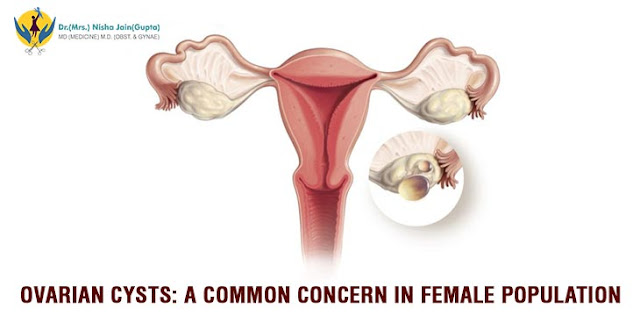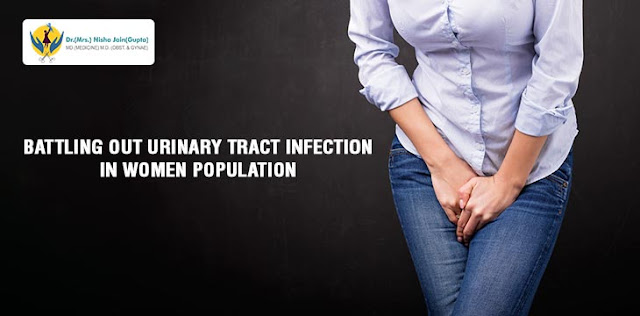Ovarian Cysts: A Common Concern In Female Population
Ovaries are one of the most vital organs in the female reproductive
system, it enables the eggs that sperm must fertilize for women to get
pregnant. They also provide the hormones estrogen and progesterone. When
the ovaries are running accurately, nobody pays much notice to them.
But seldom, ovaries produce challenges that move the attention downward.
Such issues mainly include ovarian cysts—fluid-filled sacs that form on the ovaries. It has been observed that many women in their lifetime get ovarian cysts, and while they’re normally nothing to be embarrassed about, they can indicate more severe health problems. What you should do if you have ovarian cysts.
Still, it is viable to have some signs, such as irregular periods, spotting, or pelvic aches and pains, but these aren’t very prevalent. If you do notice these signs, it’s an opportunity to review it with your physician to be certain whether the cyst isn’t something more serious. While most cysts are completely harmless, they can seldom be cancerous, particularly in postmenopausal women.
Rarely, cysts can break, or break open, producing heavy bleeding or severe pain. If someone experiences different signs of a ruptured cyst, head to the Nisha Jains Clinic. the signs may include pain with vomiting and fever, severe abdominal pain that comes on abruptly, weakness, faintness, or dizziness and even rapid breathing in many of the cases.
Content Source : https://www.drnishajain.com/ovarian-cysts-a-common-concern-in-female-population/
Such issues mainly include ovarian cysts—fluid-filled sacs that form on the ovaries. It has been observed that many women in their lifetime get ovarian cysts, and while they’re normally nothing to be embarrassed about, they can indicate more severe health problems. What you should do if you have ovarian cysts.
Signs Associated With Ovarian Cysts
Most cysts are not a big concern about, and they typically don’t induce any indications. It’s even possible that the physician might even find one you didn’t know about during a pelvic exam.Still, it is viable to have some signs, such as irregular periods, spotting, or pelvic aches and pains, but these aren’t very prevalent. If you do notice these signs, it’s an opportunity to review it with your physician to be certain whether the cyst isn’t something more serious. While most cysts are completely harmless, they can seldom be cancerous, particularly in postmenopausal women.
Talking About Cyst Types
Most ovarian cysts are usually harmless, or not cancerous. If we look at some common types of cysts, it includes the dermoids which originate from cells that have been existing since birth. The next most common type of cyst observed is Endometriomas which is caused by endometriosis, a condition where the tissue that lines the uterus spreads outside of the uterus. A cystadenoma is also a form of a cyst which develops from the surface of the ovary and is filled with watery fluid.Rarely, cysts can break, or break open, producing heavy bleeding or severe pain. If someone experiences different signs of a ruptured cyst, head to the Nisha Jains Clinic. the signs may include pain with vomiting and fever, severe abdominal pain that comes on abruptly, weakness, faintness, or dizziness and even rapid breathing in many of the cases.
No Womb Miseries
Excellent news: If you’re attempting to get pregnant, no obligation to worry. Most ovarian cysts do not diminish your fertility. Still, there are a couple of anomalies. If you have clumps of pearl-sized ovarian cysts, the doctor might diagnose you with polycystic ovary syndrome—a preeminent condition of infertility in women. Cysts that develop as the outcome of endometriosis might also impair fertility. Talk to your surgeon if you have any difficulties or mysteries.The Facts About Cyst Treatment
Because most cysts are harmless and don’t generate any signs, such cases presumably won’t need any treatment. Still, if you get cysts regularly and do want therapy, the physician may be able to guide with birth control pills which may lessen the risk of forming new cysts. For very particular cases, physicians may suggest surgery to eliminate the cysts. These cases include having cysts that produce signs and won’t go away. Moreover, they are larger than ten centimeters and occur when you’re near or past menopause.Reference
If cyst formation has become a regular concern for you, its not a matter to worry about rather meet Dr Nisha Jain, the best gynecologist in Delhi.Content Source : https://www.drnishajain.com/ovarian-cysts-a-common-concern-in-female-population/




Comments
Post a Comment